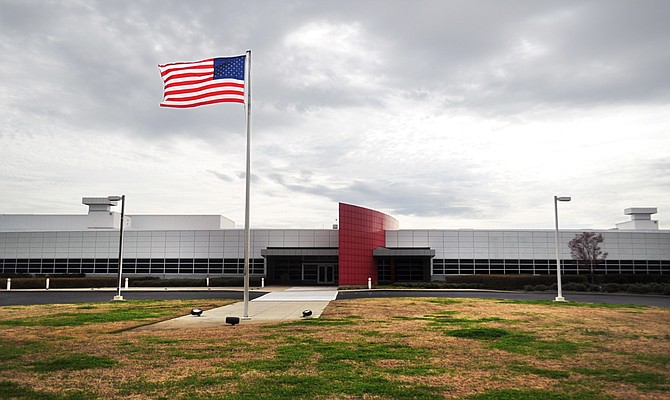On the podium in Jackson stood Mississippi's leading corporate boosters decrying a possible victory by pro-union workers at Nissan's Canton plant in the Aug. 3-4 election to determine whether they can join the United Auto Workers union. Trip Burns/File Photo
On the podium in Jackson stood Mississippi's leading corporate boosters decrying a possible victory by pro-union workers at Nissan's Canton plant in the Aug. 3-4 election to determine whether they can join the United Auto Workers union.
At their July 20 press conference, Mississippi Economic Council interim President and Chief Executive Officer Scott Waller, Greater Jackson Chamber Partnership President and CEO Duane O'Neill and others made clear whose side they're on: the Nissan bosses who have allegedly threatened and intimidated workers and led to international condemnation.
On the other side are the workers, Mississippians, 80 percent of whom are African American, who have little say in work and safety conditions, complain of minimal-at-best medical treatment for work injuries, and even lost a colleague in 2015, Derick Whiting, who collapsed on the plant floor during working hours.
It's not just the pro-union workers doing the complaining. The U.S. Occupational Safety and Health Administration has fined Nissan tens of thousands of dollars for safety violations at the plant. The National Labor Relations Board has charged the company with violating workers' rights. Nissan was forced to pay Iraq and Afghanistan military veteran Chip Wells $6,500 in disability and back pay after treating him with such hostility for his pro-union views that he had to go on medical leave.
Joining Waller, a former business editor with The Clarion-Ledger, and O'Neill on the side of the company bosses is Mississippi Gov. Phil Bryant, one of those old-school conservatives who always cry about outside interference in state affairs unless, of course, that outside interference is anti-union. If so, then welcome to Mississippi!
Hypocrisy—another word for lying—is a common phenomenon in union battles. Witness Carlos Ghosn himself, the CEO of Nissan and partly French-owned Renault, who told the French Parliament in February 2016 that Nissan always cooperates with unions. In fact, every single Nissan plant around the world is unionized except the ones in Mississippi and Tennessee.
Yet this is the same Carlos Ghosn who told Nissan workers in Smyrna, Tenn., the day before their union election in 2001 that a union "is not in your best interest."
They got the message.
When a union election was scheduled at the Volkswagen plant in Chattanooga, Tenn., in 2014, U.S. Sen. Bob Corker, R-Tennessee, initially pledged that he'd stay out of it. He lied. He soon joined Tennessee Gov. Bill Haslam in an anti-union smear campaign that included secretly making a $300-million state-funded expansion of the plant contingent on keeping the union out.
Poor ol' Mississippi, so poor it can't even keep its roads paved and bridges repaired, has thus far spent $1.3 billion on taxpayer subsidies to keep Nissan in Canton. Nissan is a $38.4 billion company. Carlos Ghosn earns $10 million a year and has a net worth of $100 million.
The biggest charge against Nissan workers organizing is that they already earn good wages for Mississippi. Nissan refuses to reveal what it pays its full-time workers. However, an estimated 2,900 of its 6,400 workers in Canton are temporary or contract workers, with temporary workers earning between $13.46 and $14.21 an hour. Guess what the average central Mississippi production worker earns? $16.70.
Still, the campaign is not really about money. A decade ago, two years after it began, Nissan-Canton worker Yvette Taylor told a gathering at the Canton United Methodist Church how Nissan threw her into a tangled web of bureaucracy, disrespect, missteps in treatment, and finally dismissal after she injured her hands and knees on the job.
"So many things happened that I just don't know where to begin," the mother of 10 said. Finally, she says, "I got a letter in the mail saying I was terminated."
Workers join a union to get respect, to have a collective voice that they can't have as individuals, to have a say in working conditions. They have a legal right to join a union, yet when they try to exercise that right, they can face life-crushing threats.
Veteran labor organizer Rose Turner knows all about this. She helped catfish workers at Delta Pride in Indianola win their historic union election in 1986: "We were at the crossroads. Either we were going to change things or ... our kids were going to have the same situation," she once said. "I've never been afraid of anything because before I do anything, I put God first."
Joe Atkins is a veteran journalist and a professor at the University of Mississippi.




Comments
Use the comment form below to begin a discussion about this content.
comments powered by Disqus